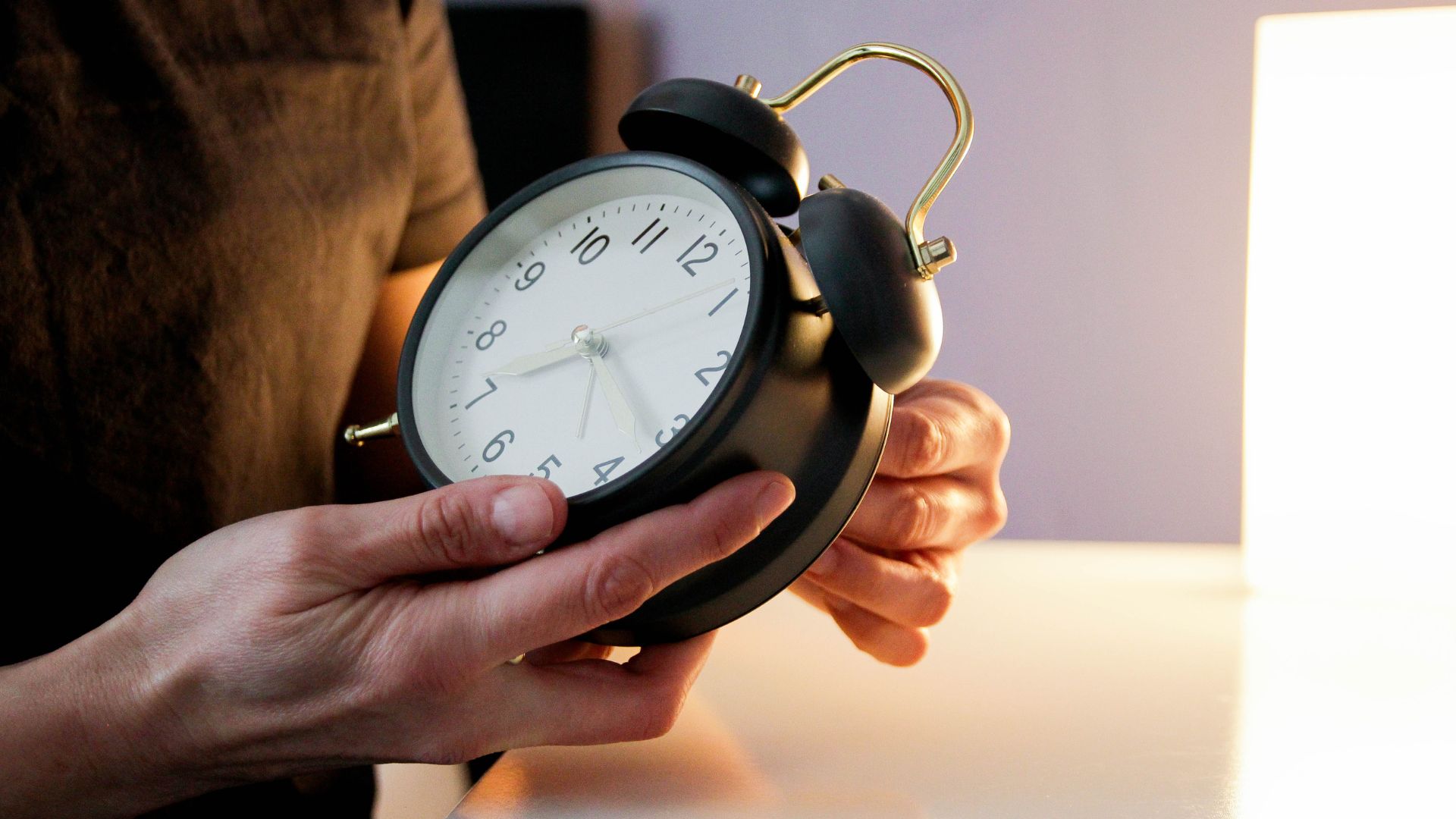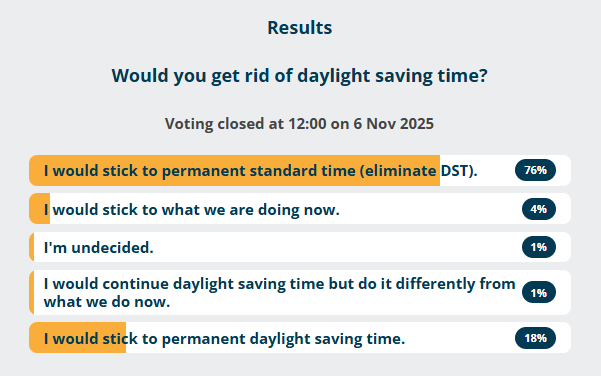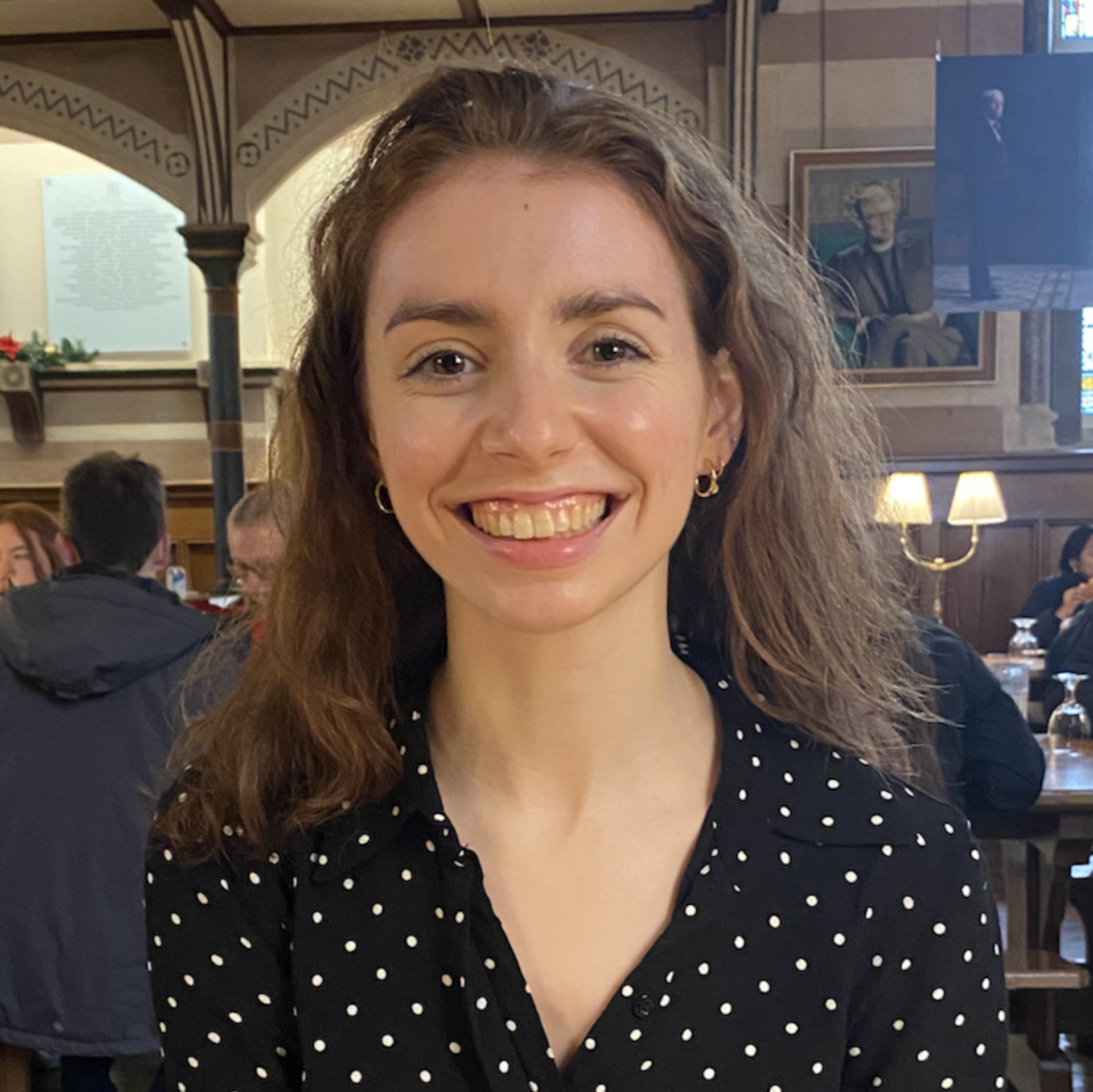'DST just seems so pointless': Poll reveals most Live Science readers want to eliminate daylight saving time
Thousands of Live Science readers responded to our poll asking if they would get rid of daylight saving time.

Get the world’s most fascinating discoveries delivered straight to your inbox.
You are now subscribed
Your newsletter sign-up was successful
Want to add more newsletters?

Delivered Daily
Daily Newsletter
Sign up for the latest discoveries, groundbreaking research and fascinating breakthroughs that impact you and the wider world direct to your inbox.

Once a week
Life's Little Mysteries
Feed your curiosity with an exclusive mystery every week, solved with science and delivered direct to your inbox before it's seen anywhere else.

Once a week
How It Works
Sign up to our free science & technology newsletter for your weekly fix of fascinating articles, quick quizzes, amazing images, and more

Delivered daily
Space.com Newsletter
Breaking space news, the latest updates on rocket launches, skywatching events and more!

Once a month
Watch This Space
Sign up to our monthly entertainment newsletter to keep up with all our coverage of the latest sci-fi and space movies, tv shows, games and books.

Once a week
Night Sky This Week
Discover this week's must-see night sky events, moon phases, and stunning astrophotos. Sign up for our skywatching newsletter and explore the universe with us!
Join the club
Get full access to premium articles, exclusive features and a growing list of member rewards.
It's that time of year again: The evening now arrives earlier than many people punch out of work. On Sunday, Nov. 2, the clocks fell back by an hour for residents of 48 U.S. states and Navajo Nation, marking the end of daylight saving time (DST). In Europe, DST ended on Sunday, Oct. 26.
Despite the American Academy of Sleep Medicine (AASM) being in favor of establishing permanent standard time, many individuals want to keep DST year-round. In a Live Science poll published Oct. 28, we asked our readers what they thought about the contentious issue, asking whether or not they would get rid of daylight saving time.
In what is now the largest Live Science poll to date, 3,280 readers responded by the end of the voting window on Nov. 6. The vast majority said they would eliminate DST, with 76% stating they would stick to standard time, permanently. Meanwhile, 18% said they would rather remain in DST year-round.
Only about 4% of respondents wanted to keep the status quo, while approximately 1% said they would prefer to continue flicking between DST and standard time, but just not in the same way as we do under the current system. The remaining 1% hadn't made up their minds.
"I would be up for scrapping it. DST just seems so pointless," said Devin Smith, from Detroit. Fellow Michiganders shared this view, with Rob Beare echoing a preference for standard time because "10 pm daylight in the summer isn't as important as 8 am sunlight in winter when kids are trying to safely make their way to school."
But others explained they would stay in DST permanently because they wanted lighter evenings. "More evening daylight means more useful time after work/school," "M'Lud" wrote. "Waking up in the dark feels normal. Arriving home in the dark can be depressing."
Dave M agreed, stating a preference for year-round DST to get rid of "that yearly November shock of suddenly driving home from work in the dark." Dave added that the annual fall back also limits the opportunities for recreational activities, with Jane B also noting that permanent DST would "make it easier to accomplish post-business hour tasks."
Others were led by the research on the negative health repercussions of a mismatch between our body clocks and the environment. "The science is clear and standard time is solar time," PazKe said. "It shouldn't even be a question."
What do you think? Share your view in the comments below.


Sophie is a U.K.-based staff writer at Live Science. She covers a wide range of topics, having previously reported on research spanning from bonobo communication to the first water in the universe. Her work has also appeared in outlets including New Scientist, The Observer and BBC Wildlife, and she was shortlisted for the Association of British Science Writers' 2025 "Newcomer of the Year" award for her freelance work at New Scientist. Before becoming a science journalist, she completed a doctorate in evolutionary anthropology from the University of Oxford, where she spent four years looking at why some chimps are better at using tools than others.
You must confirm your public display name before commenting
Please logout and then login again, you will then be prompted to enter your display name.
 Live Science Plus
Live Science Plus





